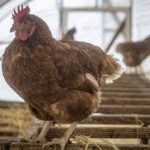Golden Retrievers are known for their friendly and loyal nature, making them one of the most popular dog breeds worldwide. As a responsible dog owner or breeder, understanding the canine pregnancy process is essential for ensuring the health and well-being of the mother and her future litter. In this article, we will delve into the duration of pregnancy in Golden Retrievers and shed light on the various aspects of this critical phase.
The Gestation Period of Golden Retrievers
The gestation period, or the length of Golden Retriever pregnancy, plays a vital role in the development of the puppies and their mother’s overall health. On average, Golden Retrievers are pregnant for approximately 63 to 67 days. However, it’s essential to note that individual variations may occur, and factors such as the dog’s age, health, and genetics can influence the exact duration of pregnancy.
Recognizing Signs of Pregnancy
Identifying the early signs of Golden Retrievers pregnancy is crucial for providing proper care and support to the expectant mother. During the initial stages of pregnancy, you may notice behavioral changes such as increased affection, nesting behavior, and decreased appetite. Additionally, the dog’s nipples may become more prominent and change in color. As the pregnancy progresses, the abdomen will start to swell, indicating the growth of the developing puppies.
Preparing for the Pregnancy
Before breeding a Golden Retriever, it’s essential to ensure both the male and female dogs are healthy. It would help if you carried out a pre-breeding health assessment for the female dog, which includes a visit to the veterinarian for a comprehensive check-up. Proper nutrition is also critical during pregnancy, as the mother’s dietary needs change. Consult your veterinarian to create a well-balanced and nutritious diet plan for the pregnant Golden Retriever. Additionally, preparing a comfortable and safe environment for the expectant mother is vital to help her feel secure.
Monitoring the Pregnancy Progress
Regular veterinary check-ups and ultrasounds are essential to monitor the progress of the pregnancy. During these visits, the veterinarian can assess the health of the mother and her developing puppies, ensuring everything is progressing as expected. Tracking the mother’s weight gain and other health indicators can provide valuable insights into the pregnancy’s overall well-being.
Care and Support During Pregnancy
As a dog owner, your role during your Golden Retriever’s pregnancy is crucial. Providing care and support throughout this period can significantly impact the health and happiness of the mother and her future litter. Ensuring the expectant mother gets sufficient rest, moderate exercise, and mental stimulation is essential for her well-being. Moreover, maintaining a stress-free environment benefits the pregnant Golden Retriever and her developing puppies.
Understanding Dog Pregnancy: Golden Retriever
Golden Retrievers, like most dog breeds, are pregnant for an average of about 63 days. However, it’s essential to note that the duration of pregnancy can vary slightly from one dog to another, ranging from 58 to 68 days. It’s normal for individual variations to occur in the gestation period.
It’s crucial to provide proper care and attention to the pregnant Golden Retriever during pregnancy. Regular veterinary check-ups, a balanced diet, and a safe, comfortable environment are vital to ensure the health of both the mother and the developing puppies.
The stages of a dog’s pregnancy are as follows:
- Fertilization: Occurs when the male’s sperm fertilizes the female’s eggs.
- Embryonic Development: The fertilized eggs develop into embryos and travel down the uterine horns to attach to the uterine lining.
- Fetal Development: The embryos further develop into fetuses, and the organs and body structures begin to form.
- Final Weeks: As the pregnancy progresses, the mother’s belly will enlarge, and you may be able to feel the puppies moving. During this time, it’s essential to prepare a suitable whelping area where the mother can give Birth and care for her puppies.
- Parturition (Giving Birth): Generally occurs around the 63rd day of pregnancy, but again, it can vary. Some signs that labor is approaching include restlessness, nesting behavior, a drop in body temperature, and decreased appetite.
Monitoring the pregnant Golden Retriever closely during this time and being prepared to assist in the whelping process if necessary is essential. If you are not an experienced breeder, having a veterinarian on standby or involved in the process is recommended to ensure the health and safety of both the mother and the puppies.
Potential Complications and Warning Signs
While canine pregnancies are generally smooth, it’s essential to be aware of potential complications that may arise. Some common issues include prenatal infections, nutritional deficiencies, and complications during delivery. Monitoring a pregnant Golden Retriever for abnormal signs like lethargy, vaginal discharge, or loss of appetite is crucial to detect potential issues early. Should any warning signs emerge, seeking prompt veterinary attention is essential to safeguard the mother’s and her puppies’ well-being.
The Final Stages: Whelping and Delivery
As the gestation period nears its end, the pregnant Golden Retriever will show signs of impending labor. These signs may include restlessness, nesting behavior, and decreased body temperature. During whelping (the act of giving Birth), the mother will go through stages of labor, and owners must provide a calm and supportive environment. Understanding the normal birthing process and being prepared for potential complications can make this moment less stressful for the dog and the owner.
Postnatal Care for the Mother and Puppies
Once the Golden Retriever has successfully given birth, postnatal care becomes paramount. The mother will require ample rest and proper nutrition to recover from birthing and nursing her puppies. Ensuring a warm and clean whelping area is essential for the puppies’ well-being. In the initial weeks, the puppies’ development is rapid, and they rely solely on their mother’s milk for nutrition. Monitoring the puppies’ growth and health during this critical phase is crucial for their overall development.
Responsible Breeding Practices
Understanding the importance of responsible breeding practices cannot be overstated. Irresponsible breeding can lead to genetic issues and overpopulation, which strains animal shelters and rescue organizations. Responsible breeders prioritize the health and well-being of the breed, adhere to ethical standards, and perform health screenings to minimize the risk of passing on hereditary conditions.







